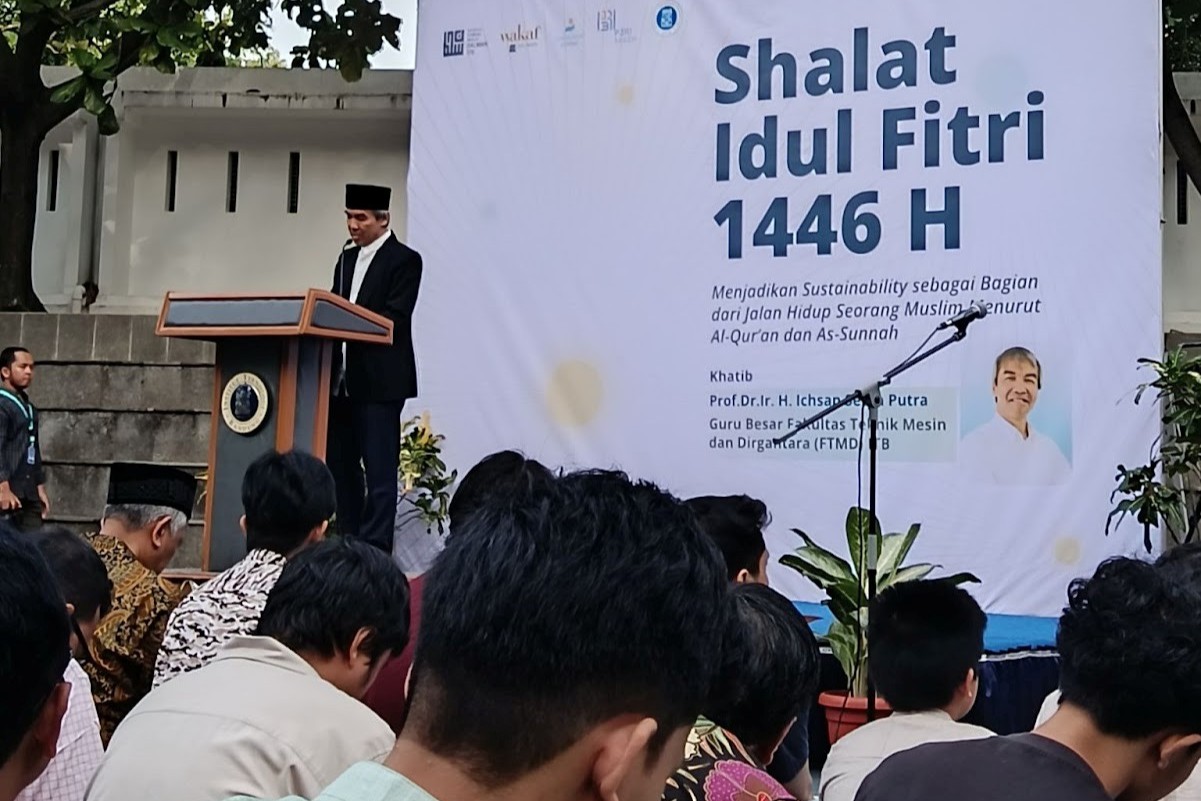Ground Control Station Lead ITB Students to Win 2nd National in KRTI Competition 2023
By Anggun Nindita
Editor Anggun Nindita

BANDUNG, itb.ac.id — Team Catra Danadyaksa from Aksantara student organization of Institut Teknologi Bandung (ITB), specializing in Unmanned Aerial Vehicle (UAV), won second place during the National Kontes Robot Terbang Indonesia (KRTI) 2023 in the Technology Development (Ground Control Station) category.
KRTI 2023 was organized by Balai Pengembangan Talenta Indonesia, Pusat Prestasi Nasional, as well as General Secretary of The Ministry of Education, Culture, Research, and Technology, and was held both in person and online. The qualifying round of the competition was held online while the final round of the competition took place at Pangkalan Udara TNI AU Pangeran M. Bun Yamin, Lampung (22-27/10/2023).
Ground Control Station (GCS) or more commonly known as control station is a land control system that provides connection between humans and vehicles. GCS has a vital role in monitoring and commanding the unmanned aircraft.
“Developments that we are doing in this year’s KRTI include GCS application system, tracker, and antenna. The application itself is used as a control center while the tracker allows the system to track drones. We can say that this tracker will follow the drone’s active movement while the antenna provides instructions and data flight from the drone,” said the team leader, Sigit Ardiansyah.
The newly developed GCS application is based on a web application which was designed to provide auto missions with different flight modes such as auto, loiter, manual and precision landing. Furthermore, in-app voice activation is also available which allows voice commands during take-off, landing and start. Flight data, such as latitude, longitude and altitude from the ground can also be obtained via voice activation.

Sigit Ardiansyah (Mechanical Engineering 2021) also added that the GCS device is equipped with a docking station that allows wireless charging technology to be utilized within the system. Docking stations are landing stations that can provide a simplified way of recharging an electronic device.
The greatest strength of the GCS lies within its antenna. "The manufacturing process is simple, fast, and cost-effective. The raw materials used are aluminum plates which were cut using a laser cut method. So, this antenna has great potential to be produced massively," said one of the team members, Rafa Nanda Akilah (Astronomy, 2021).
Team Catra Danadyaksa is one out of seven teams that represent Aksantara ITB during the KRTI 2023. Trials and errors for this competition was done 5 months beforehand to finalize the concepts and experiment data. The team was also mentored by Ahmad Izzuddin, S.T., M.T., a lecturer from Telecommunication Engineering.

Sigit then elaborated on struggles that the team has to face during the contest. “We were given a total of 20 minutes to demonstrate but we ended up only using 7 due to the area's poor connection. For the remaining 13 minutes, we were forced to think outside the box so that the GCS system could perform and connect to one another. The heavy wind also influenced the whole performance of the drone during the competition,” he said.
“This team has unique and broad innovations to further explore and develop. Unity must continue to be built by organizing frequent gatherings and cooperations. Caring and initiative among team members is the main key to success. This year, we are using a quadcopter type drone, but hopefully next year we can try fixed-wing type and different GCS applications which can accommodate both quadcopter and fixed-wing type vehicles," he said during the interview (15/10/2023).
Reporter: Maharani Rachmawati Purnomo (Oceanography, 2020)
Translator: Kezia Hosana
Editor: Vera Citra Utami

.jpg)

.jpg)
.jpg)
.jpg)


